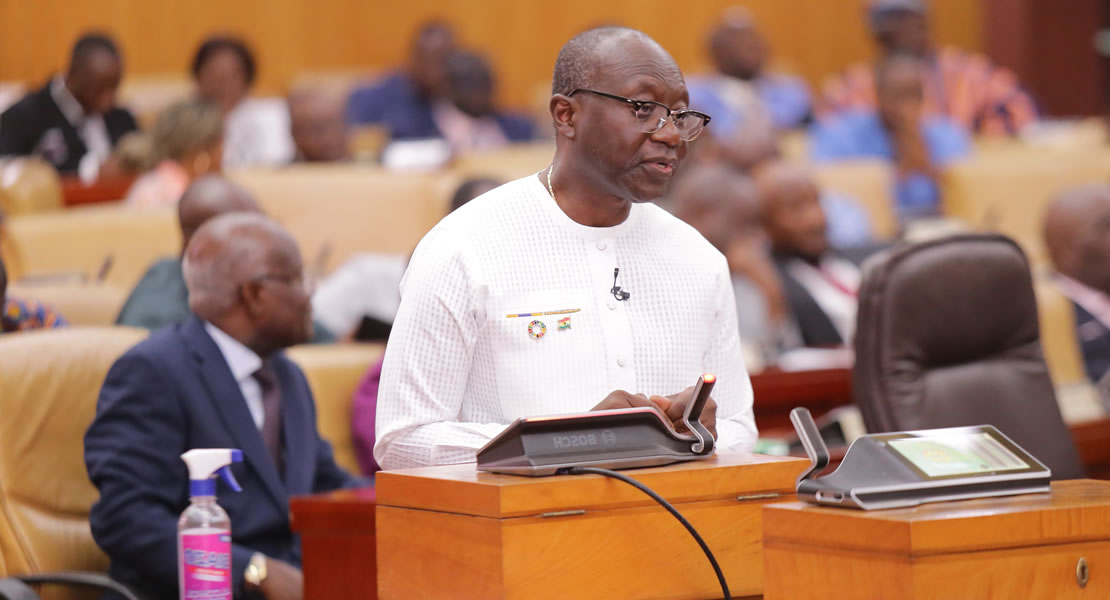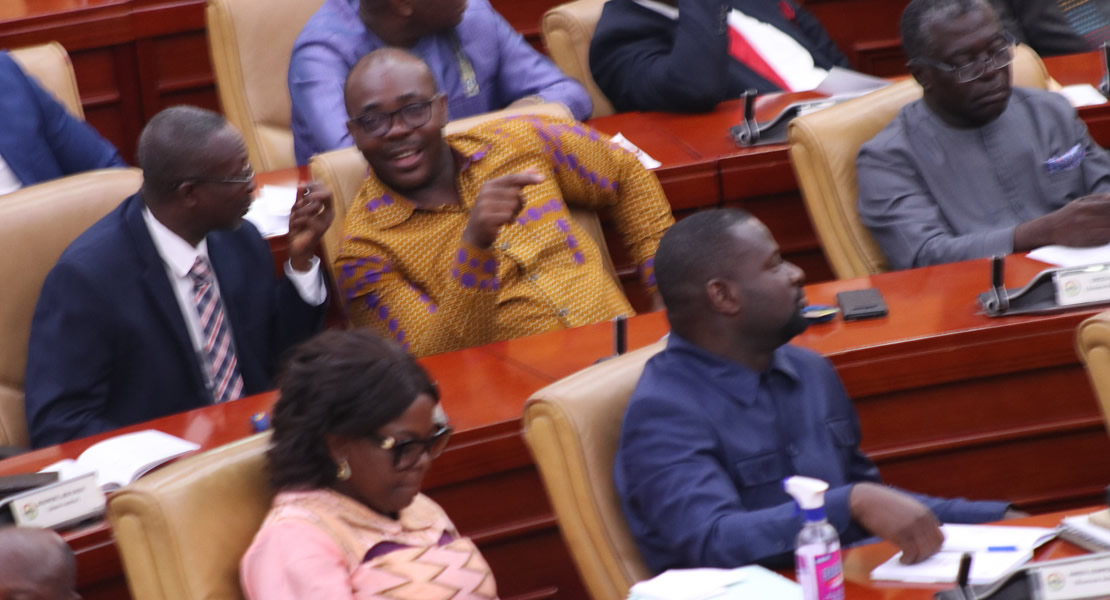
Presenting the 2024 budget on the floor of the House on Wednesday, November 15, 2023 Finance Minister Ken Ofori Atta noted two years out of the seven years that the current New Patriotic Party has been in power the Ghanaian economy faced challenges.
The economy, growing at an average of 7 percent with a single-digit inflation, declining interest rates and a stabilising currency, suffered unforeseen shocks like many other economies.
GDP growth slumped from 6.5 percent in 2019 to 0.5 percent in 2020 – as the lockdown and closure of businesses and the ports had a devastating effect on the economy, triggering a cost-of-living crises that has made lives difficult for the Ghanaian people.
Though bartered and bruised, we are not broken and our resilience is manifesting and we also saw the damaging effects that the economic downturn had on Ghana’s already stretched revenues.
This was even made worse by the additional expenditures that were required during the covid-19 Pandemic to ensure that life and livelihoods were protected, he said.
Mr. Speaker, 2020 was also in an election year. The first ever election in the Fourth Republic with zero donor funding.
However, Government’s sensitivity to our people was remarkable: No lay-offs in the public service; salaries were dutifully paid over the year; and free water and electricity for the entire population was provided, especially for life-line consumers.
Indeed, Entrepreneurship was not ignored as GH¢600 million of CAPBuSS from GEA was effectively deployed.
Mr. Speaker, permit me to clarify that the disruption to our macroeconomic path over the last few years was not peculiar to Ghana. The global disruption to supply chains, adjustment to new forms of work, and shifts in demand produced some of the most cataclysmic effects on inflation and growth worldwide.
This set-off the worst form of global cost of living crises since World War II. In the US, inflation surged from a low of 1.8 percent in 2019 to 6.5 percent by 2022 and is currently at 3.7 percent. We have seen this reflect in interest rate decisions by the US Federal Reserve and also in benchmark yields. The yield on the 10-year US Treasury instrument is currently at 4.6 percent compared to 1.4 percent two (2) years ago.
And this is an economy whose currency is the global reserve currency. We see similar trends in the Eurozone and also in the UK. Inflation in the UK was 1.7 percent in 2019 and was recorded at 11.1 percent in October 2022, a 41-year high. Changing The Narrative in the Mid-Year Review, I informed this House that we had started turning the corner.
Today, it is evident that: i. We turned the corner when inflation started declining from 54.1 percent in December 2022 to 35.2 percent in October 2023; ii. We turned the corner when, despite a 1.5 percent projected growth, the economy galloped at a remarkable pace, and clocked an average of 3.2 percent growth in the first two quarters of the year; iii.
We turned the corner when the currency, which had been under severe pressure over the past two years, depreciated by a modest 6.4 percent cumulatively from February to date, compared to 53.9 percent over the same period in 2022.
The performance of the Cedi is also a reflection of 4 the fact that confidence is back, revenues have improved, and that the recovery is indeed real and is here to stay; iv. We turned the corner when companies started going back to the job markets to hire workers; v. We turned the corner when the International credit rating agencies, which have not been favourable to Ghana in recent years, started being positive about our economy; and vi. We turned the corner when the Banking industry started to record and report a profit-after-tax growth of 43.8 percent (GH¢6.2 billion); vii. We turned the corner when in record time we completed the IMF 1st Staff Review of 6 Performance Criteria, 3 Indicative Targets and 3 Structural Benchmarks.
Ghanamps.com